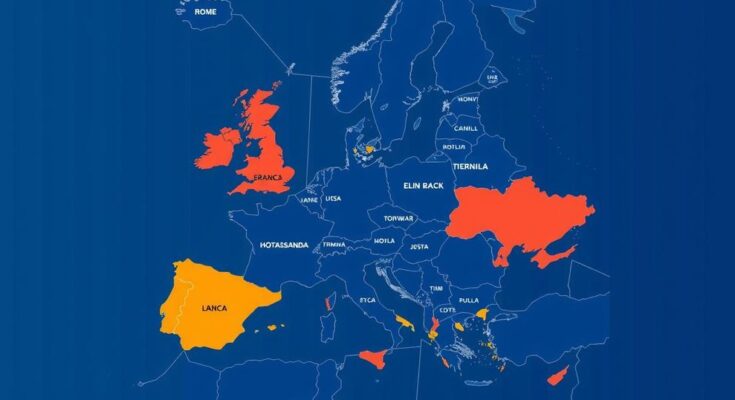The EU is accused of facilitating forced deportations from Türkiye to Syria and Afghanistan, with an investigative report revealing human rights abuses in EU-funded detention centers. President Ursula von der Leyen has proposed creating ‘return hubs’ for migration management, although Egypt and Tunisia show reluctance to cooperate. Over 60 NGOs have called for an end to EU-Tunisia migration cooperation, deeming Tunisia unsafe for migrants. Additionally, over 310,000 individuals have fled Lebanon to Syria amidst escalating regional conflict.
The European Union (EU) is currently facing accusations of complicity in forced deportations stemming from Türkiye to Syria and Afghanistan, as outlined in a recent investigative report published by Lighthouse Reports in collaboration with several prominent media organizations. This report indicates that the EU has funneled significant financial resources into a questionable deportation system operating just outside of its borders. Detainees in EU-funded facilities report experiencing torture and abuse before being coerced into signing documents for voluntary deportation. Reports from a former detainee underscored the brutality of the conditions, stating, “In prison, we were severely tortured, beaten and insulted; they also detained us in a refrigerator for up to 12 hours.” European Commission President Ursula von der Leyen has highlighted the urgent need for developing ‘return hubs’ outside of the EU in light of the forthcoming discussions on migration policy at the European Council scheduled for mid-October. A leaked Council document revealed that Egypt and Tunisia exhibit reluctance to engage in migration agreements with the EU, while cooperation with Libya is expressed to be positively evolving. Moreover, more than 60 non-governmental organizations (NGOs) have petitioned for the cessation of EU-Tunisia cooperation, arguing that Tunisia lacks the necessary safeguards for the humane treatment of migrants, given its ongoing human rights violations. A joint statement from these organizations condemned Tunisia as “not a safe place for the disembarkation of people intercepted or rescued at sea.” In a worrying development, an estimated 310,000 individuals have fled from Lebanon to Syria amid the escalation of conflict in the region, with many facing extortion at border checkpoints during their flight. The situation reflects the dire humanitarian conditions deteriorating across the Middle East, prompting urgent calls for a reevaluation of EU migration policies that may inadvertently facilitate violations of human rights.
The article discusses a significant issue concerning the European Union’s (EU) involvement in forced deportations as revealed by a recent investigative report. This report highlights allegations of the EU indirectly facilitating such deportations through financial support for detention centers in Türkiye, where serious human rights abuses occur. European leaders, particularly President Ursula von der Leyen, are navigating complex migration challenges, calling for the establishment of ‘return hubs’ as a strategy to manage migration flows, especially in light of increasing refugees from conflict regions. The growing criticism from NGOs and the negative responses from potential partner countries such as Egypt and Tunisia underline the contentious nature of EU migration policies and the questions raised about their compliance with human rights standards.
In conclusion, the EU’s policies concerning migration and deportation procedures are under intense scrutiny due to recent revelations of human rights violations linked to its financial support for detention centers in Türkiye. The call for ‘return hubs’ has sparked significant opposition, emphasizing concerns about the safety and rights of migrants. The reluctance of countries like Egypt and Tunisia to cooperate on migration agreements, coupled with increasing numbers of people fleeing conflict in Lebanon, underscored the pressing need for the EU to reassess its strategies and commitments to human rights in its migration approach.
Original Source: ecre.org




